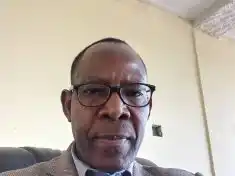
As Malawi gears up for next year’s presidential elections, political analysts have said there is not a distinct political ideology among the major political parties.
In political science, a political ideology is a set of ethical ideals, principles, doctrines, myths or symbols of a social movement, institution, class or large group that explains how society should work and offers some political and cultural blueprint for a certain social order.
In separate interviews Tuesday, political commentators said the country’s political parties do not compete on ideologies.
Political analyst Ernest Thindwa said political and electoral competition in Malawi is not driven by ideology.
According to Thindwa, parties are not informed by ideological positioning when formulating public policy because the biggest constituency for the voting population is the poor.
“Parties, in their quest to optimise votes in pursuit of power, are inclined to offer pro-poor public policy, resulting in the convergence of public policy choices by all parties.
“As such, ideology-driven political competition is less feasible in our case, primarily because socio-economic programme design by competing parties cannot be differentiated, to the extent that all parties target the largest voting constituency—the poor,” Thindwa said.
He added that in the absence of distinct ideologies, ethno-regional fault lines become the easier basis for party differentiation and mobilisation.

Commenting on the matter, another political analyst Henry Chingaipe said political science research has shown that the initial set of political parties—Malawi Congress Party (MCP), Alliance for Democracy and United Democratic Front—had consistent ideological orientations which were reflected in their contributions to policy and programme in Parliament.
Chingaipe, however, said the space was fluid, if not obscured.
“The main reasons for this are mainly two. Firstly, voting behaviour of the Malawian electorate is not determined by ideological orientations of the parties. So, even the parties themselves do not invest time, energy and resources in distinguishing themselves on the basis of ideologies. They all invest in instrumentalising identities as the basis for voter mobilisation.
“Secondly, ideologies matter for policy. Unfortunately, our policy space is dominated, almost fully appropriated, by the ideological framework of the main western donors i.e. neoliberal policy framework. Consequently, this undermines the incentives for parties to develop or manifest their distinct ideological positions.
“We run a political system in which changing political regimes hardly results in fundamental changes in policy,” Chingaipe said.

On his part, another political commentator Wonderful Mkhutche said Malawi’s political parties were not centred on ideology, but personalities and regional support.
According to Mkhutche, the only time political parties try to take the ideological turn is during elections, when they come up with manifestos.
“However, the manifestos are done by political experts and this is why we see this clarity of thought, something that cannot be seen during implementation since the political actors are not well-versed in political ideologies.
“However, it must be stated that ideologies are important in politics. They provide an important blueprint on the political direction and also dictate an approach to politics as well as the economy.
“This is why we see uncoordinated actions in our political direction since our minds are everywhere and not guided by a given political direction. This also affects the development of the country because for us to have a clear sense of development direction, we need political direction,” Mkhutche said.
He observed that Malawi’s political parties almost campaign on the same things.
“Every party talks of constructing a road or bringing electricity to the people. But they do not answer the ‘how?’ question, and this is where the ideology rests.
“They do not answer that question since they are incapable of formulating an ideology,” he said.
Another political commentator George Phiri agreed with his counterparts that political parties in Malawi have no distinct political ideologies that distinguish them from other parties.
But MCP secretary general (SG) Richard Chimwendo Banda Tuesday said the party’s ideology could be summed up as inclusive and people-centred development, driven by unity, social justice and national progress.
Chimwendo Banda said MCP was founded on the principles of unity, loyalty, obedience and discipline, adding that these pillars had shaped the party’s identity since its inception and continued to guide it today.
According to Chimwendo Banda, what differentiates MCP from other political parties is its commitment to the collective welfare of the people and their focus on long-term national development rather than short-term political gains.
“We believe in inclusive development, where every Malawian, regardless of background or region, has a stake in the country’s progress.
“Our focus is on social justice and equity—ensuring that resources, opportunities and wealth are distributed fairly to lift all citizens, particularly the marginalised, out of poverty,” Chimwendo Banda said.
DPP spokesperson Shadrick Namalomba and UTM spokesperson Felix Njawala asked for ample time before they could comment on the matter.
On his part, Peoples Party (PP) SG Ben Chakhame said his party was a socialistic party which is people-centred, hence the three pillars of unity, equity and development.
According to Chakhame, PP has the welfare of people, especially poor people in the village, at heart.
“Our Slogan ‘It’s Possible’ or ‘Nzotheka’ comes from a commitment that it is possible for every Malawian to have enough food and also some to dispose off. It is possible for every Malawian to sleep under an iron sheet-roofed house. It is possible for every Malawian to have disposable income. It is possible to create wealth for all Malawians. It is possible for everyone to enjoy their human rights.
“It is possible for real freedom of speech to be given to all Malawians. It is possible for every Malawian to access justice. Wealth was not created for a few selected Malawians. PP believes that empowering people to transform their own lives is an answer.
“The above ideology is what distinguishes us from all other parties,” Chakhame said.





0 Comments